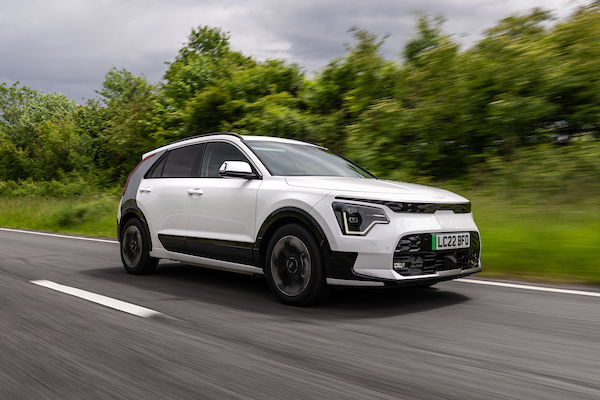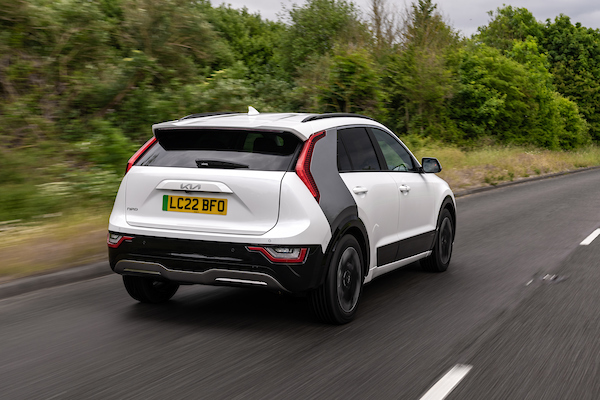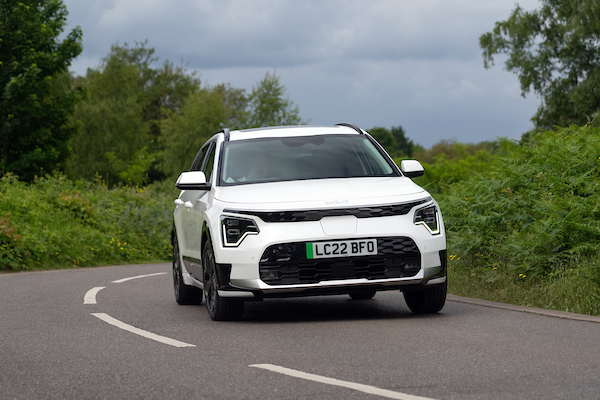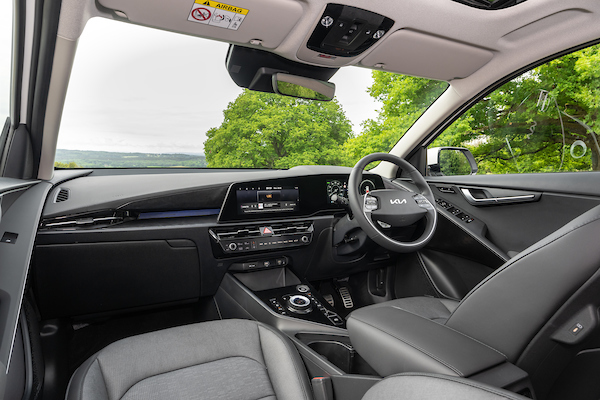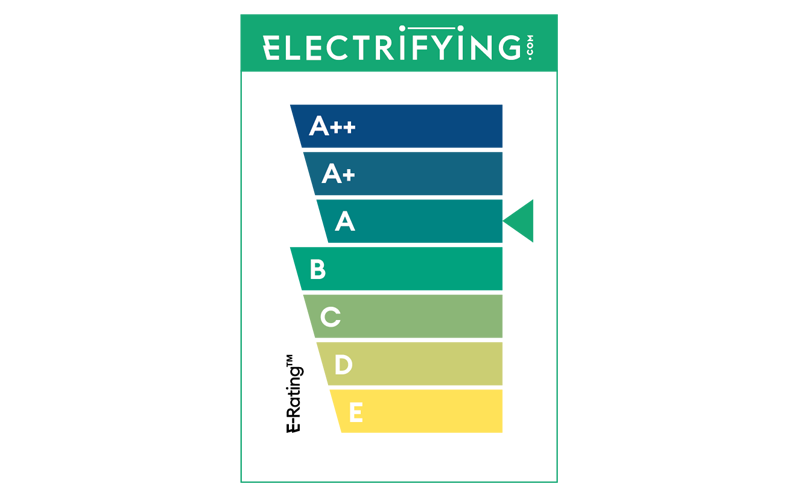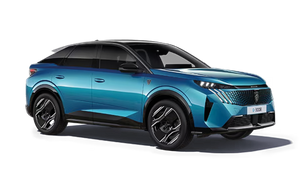Practicality & space:
The switch to a new body and platform for the Niro EV has also resulted in a longer wheelbase, and that’s bought a decent increase in interior space. This is most noticeable in the rear, where six-footers have plenty of leg- and headroom. The front seats are also now thinner to allow for more knee space in the back, and you get a centre armrest with cupholders, plus two charging ports, so the kids will be happy.
In terms of boot space, the Niro electric offers an impressive 475 litres of space (up 24 litres) in the boot, which isn't that much smaller than an EV6's 490-litres. For the first time, there's a frunk too. Although it can only hold 20 litres, that’s enough for a well-wound Type 2 cable and means that your filthy wet plugs don’t have to be stowed with the rest of your luggage in the back. There’s dedicated cable storage beneath the boot floor, though, which is much easier to fling your cables into provided you haven’t got a boot full of stuff.
The rear seats split 60/40 and fold flat to leave a smooth, extended load bay thanks to the standard variable-height boot floor. A Skoda Enyaq will be a much roomier and more practical family car, but the Niro EV will be more than good enough for most families.
Interior & Design
Inside, Kia has done a decent job in making the Niro a more rewarding place to spend time. Much as we love the outgoing model, the cabin was always something of a let-down, both in terms of layout and quality. Now, there are styling cues from the larger Sorento and Sportage models, and Kia has also introducing some new materials such as a headlining made from recycled wallpaper and door trims made from a solvent free plastics. It all looks and feels pretty classy, and is certainly a notch above the MG4 for perceived quality, and is on a par with the updated VW ID.3.
The driving position is good, too, with decent visibility all round and enough adjustment to suit most drivers. Avoid the entry-level ‘2’ trim, though as it’s the only Niro that doesn’t get adjustable lumbar support, which you will lament the lack of if you’re prone to an achy back.
Customers can also specify a ‘relaxation’ seat that reclines fully and allows you to catch forty winks during a charging break.
Dashboard
The dashboard features a long, sloping rail that houses both a digital instrument binnacle and an infotainment screen, both of which are 10.25-inch displays. As with the EV6, there’s a black panel display beneath the screen which has touch sensitive buttons that you can switch between nav and infotainment shortcuts, or air-con controls. To be honest, it’s easiest to just leave it on air-con settings and use the touchscreen for everything else. Nonetheless, it’s a sensible combination of physical buttons and touchscreen controls, and anyone switching from a traditional ICE car won’t be overwhelmed by the familiar layout.
Technology & Equipment
Every Niro EV gets a 10.25-inch touchscreen with built-in sat-nav with charger search function, Apple CarPlay and Android Auto – although you’ll have to attach your phone with a cable for that, while most rivals now have wireless connection.
It’s a good, straightforward system that’s generally easy to use, and that has all the features that you want provided you’re not expecting Tesla-style over-the-air software updates.
Entry-level ‘2’ trim gets 17-inch alloy wheels, keyless entry, adaptive cruise control and reversing camera, but the Niro EV Horizon model doesn’t cost much more yet adds heated seats and steering wheel, adjustable lumbar support for the driver, and artificial leather. This is the trim to go for, although you do have a limited selection of three rather dark paint colours on the Horizon model.
Stepping up to ‘3’ adds mostly style tweaks including a better range of colours, while ‘4’ is a big price jump but also gets head-up display, sunroof, powered bootlid, that ‘relaxation seat’ that we mentioned, and much more.
Disappointingly, a heat pump – which helps to deliver more efficient cold weather running, and therefore gets you further in between charges when it’s chilly – is a £900 option and is only offered on this top-spec ‘4’ trim. By which point, the Niro costs almost as much as a Tesla Model Y and becomes very hard to justify.
Safety
The Kia Niro EV has a great safety rating, not least thanks to the standard suite of semi-autonomous driver aids that include adaptive cruise control with lane-keep assist and traffic jam stop-and-go. Emergency brake assist is also included across the range, as are two pairs of Isofix fittings and six airbags. Euro NCAP awarded the Kia Niro EV the full five stars in its crash tests.












